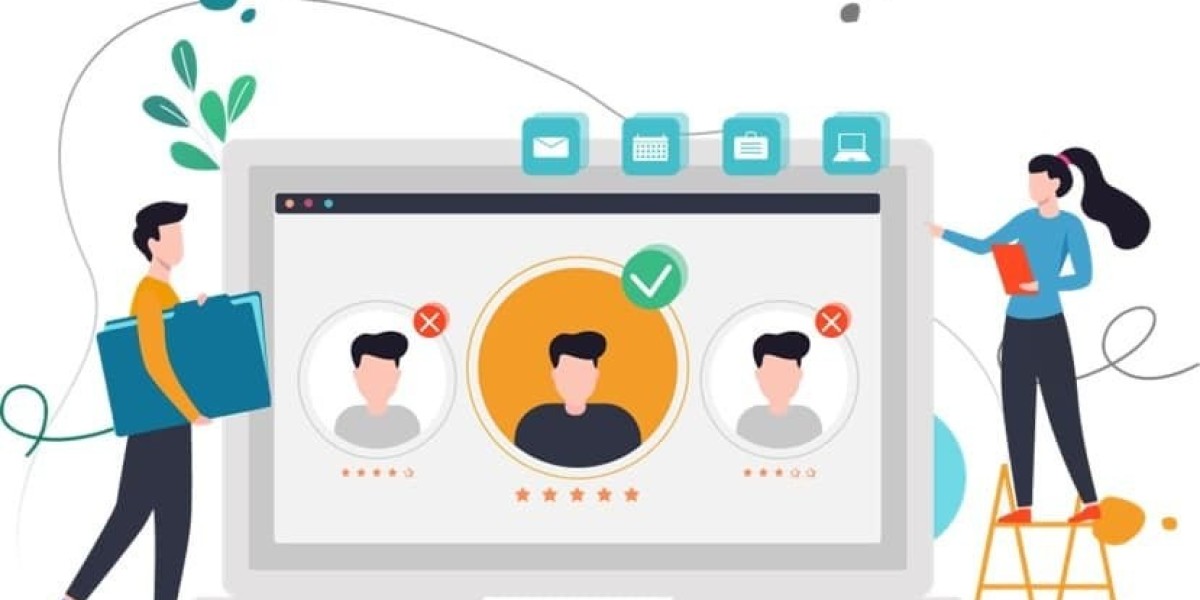Recruitment has transformed significantly in recent years, with technology playing a crucial role in reshaping how organizations attract, screen, and hire candidates. Among these technological advancements, Artificial Intelligence (AI) has emerged as a powerful tool that helps businesses optimize the entire hiring cycle. To ensure your company gains maximum value from this technology, it’s important to understand the essential features that an effective AI recruitment solution should offer.
Why Choose an AI Based Recruitment Platform
An AI based recruitment platform is designed to simplify complex hiring tasks and deliver faster, more accurate results. Unlike traditional systems, AI tools don’t just store resumes or automate emails; they analyze patterns, learn from data, and recommend candidates based on advanced algorithms. This level of intelligence allows companies to identify top talent more efficiently while reducing human bias and repetitive workload. With its data-driven approach, AI recruitment technology is no longer a luxury but a necessity for organizations aiming to remain competitive in today’s talent-driven market.
Advanced Candidate Sourcing
One of the most valuable features of a modern recruitment platform is its ability to source candidates from multiple channels. AI tools can scan job boards, professional networks, and internal databases to identify individuals who match the requirements of a specific role. By automating sourcing, recruiters save time while reaching a much larger talent pool. Additionally, AI systems can analyze social media profiles and professional portfolios to give a comprehensive view of candidates, ensuring recruiters don’t miss potential hires hidden in unconventional platforms.
Intelligent Resume Screening
Manual resume screening is often one of the most time-consuming stages of recruitment. A robust AI-driven system uses natural language processing and machine learning to filter resumes, identify relevant skills, and match candidates to job descriptions with high accuracy. This feature helps reduce the chances of overlooking qualified applicants and eliminates repetitive sorting tasks. Furthermore, AI learns from recruiter decisions, constantly improving its screening accuracy over time. This leads to higher-quality shortlists and quicker progression to interview stages.
Bias Reduction in Hiring
Unconscious bias has been a longstanding challenge in recruitment. AI technology can play a significant role in minimizing bias by focusing strictly on candidate skills, qualifications, and experiences rather than demographic factors. When properly configured, these systems provide recruiters with fairer candidate evaluations, promoting diversity and inclusion within organizations. By reducing bias, companies not only build stronger teams but also enhance their employer brand and compliance with diversity regulations.
Predictive Analytics and Insights
Another standout feature is predictive analytics, which empowers recruiters with insights into candidate success. By analyzing historical hiring data, performance metrics, and behavioral indicators, AI can forecast how well a candidate might perform in a given role. This predictive approach helps organizations make smarter hiring decisions, ultimately reducing turnover rates and improving long-term employee retention. Having access to actionable insights also allows businesses to align recruitment strategies with broader workforce planning objectives.
Candidate Experience Enhancement
An effective recruitment platform doesn’t just serve employers; it also prioritizes the candidate experience. AI-driven chatbots, personalized communication, and automated interview scheduling make the hiring journey smoother for applicants. With real-time updates and tailored job recommendations, candidates feel valued and engaged throughout the process. Positive candidate experiences not only increase acceptance rates but also strengthen a company’s reputation in the job market.
Seamless Integration with HR Systems
To maximize efficiency, AI recruitment solutions must integrate seamlessly with existing Human Resource Management Systems (HRMS) and Applicant Tracking Systems (ATS). Integration ensures data flows smoothly between platforms, reducing duplication and errors while enhancing collaboration across HR teams. This connected environment allows recruiters to manage the entire hiring lifecycle without switching between multiple tools, improving productivity and consistency.
Scalability and Customization
Every business has unique hiring needs, and the ideal AI recruitment tool should offer scalability and customization. Whether your company is hiring a few candidates a month or managing thousands of applications across multiple regions, the system should adapt without compromising performance. Customizable features such as job description templates, workflow automation, and role-specific screening criteria allow recruiters to tailor the platform to organizational requirements, ensuring maximum relevance and usability.
Conclusion
Choosing the right AI recruitment platform is more than adopting a new technology—it is about creating a hiring ecosystem that is efficient, fair, and future-ready. From intelligent sourcing and resume screening to predictive analytics and enhanced candidate experience, the key features discussed above highlight what businesses should prioritize. By focusing on these capabilities, organizations can not only fill positions faster but also build stronger, more diverse, and more engaged teams. As competition for top talent intensifies, leveraging the strengths of AI becomes essential for long-term success in recruitment.









